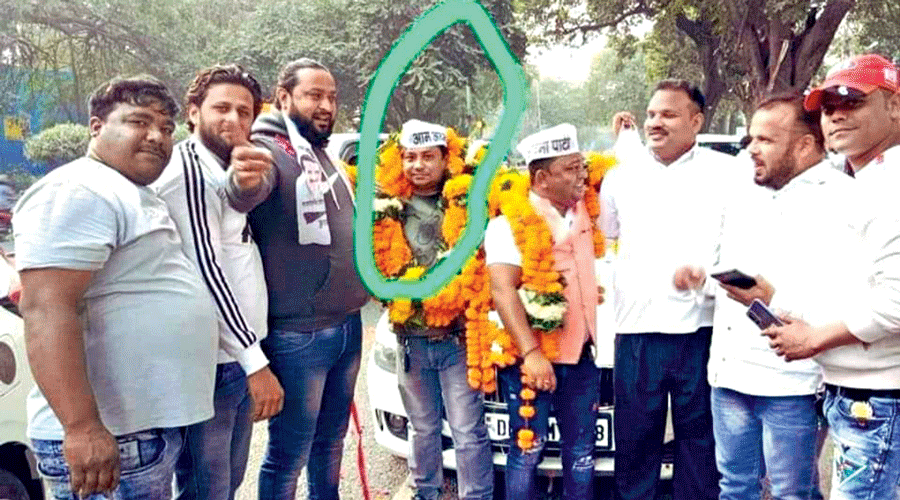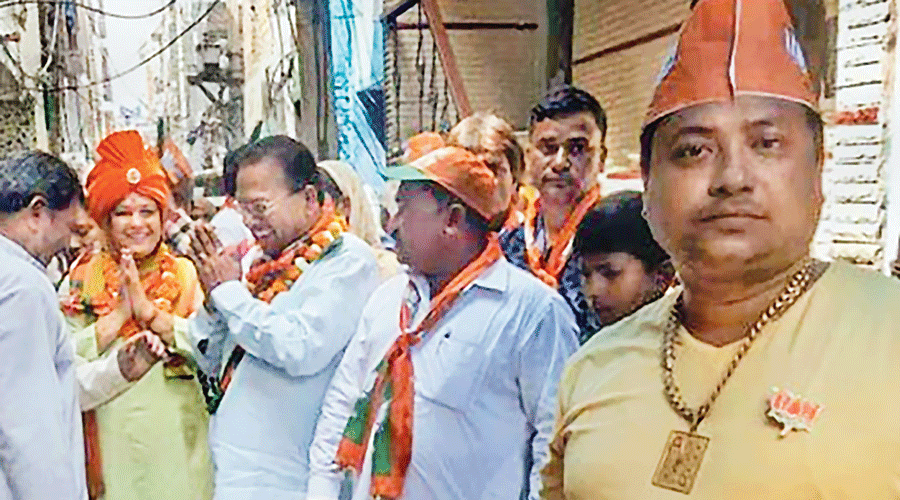The AAP government remained a bystander during the communal clash here on Saturday as the party believes its hands-off strategy is paying off and the tension is dissipating despite the continuing barrage of incendiary remarks by BJP leaders.
Neither chief minister Arvind Kejriwal nor any minister visited Jahangirpuri where the clash took place during a Hanuman Jayanti rally.
A party source said: “During the riots in 2020 and now, we don’t see merit in merely getting some air time on television by visiting a riot spot. The majority of Hindus do not hate Muslims, but they are vulnerable to propaganda that secular parties do appeasement. We won’t let the BJP derive political mileage from the situation by giving any impression that we are taking sides.”
He added: “There was brainstorming on how we should respond to the viral videos of violence in Jahangirpuri. We took an informed decisions to merely report what was happening and tell the majority how Amit Shah is responsible for these crimes as his police have the ability to stop a riot in 10 minutes. If this escalates, we may take out peace marches.”
AAP’s chief spokesman Saurabh Bharadwaj blamed the BJP for the clash and cited its own peaceful Hanuman Jayanti Shobha Yatra, which non-Hindus also helped organise, as contrast. Both the BJP and AAP have released purported photos of Mohammad Ansar — a history-sheeter arrested by the police for the riot — participating in election campaigns of each other.

A picture BJP released on Monday showing a man resembling Ansar wearing an AAP cap. BJP claims Ansar may have joined the AAP in January 2020. PTI Photo
Bharadwaj on Tuesday told reporters: “From Ram Navami to Hanuman Jayanti, they (BJP) engineered riots in seven states… Every riot only benefits the BJP. Its leaders, central ministers, national and state presidents, and MPs are only out to derive political mileage from it.”
He added: “Goons from two religions gather in an area and wave swords and firearms in front of the police. Why didn’t the police arrest them? Because it was in the script written in the BJP office… the role of the police is decided — that they must watch and not act.”
An AAP leader said it was important to address the fear of the majority.
“We cannot do anything to assuage the fear of the minorities right now. There have been opportunities to do that after the 2020 riots, but as a society we are not willing to put the hard work required to fight communalism.”
He said attempts were made both by the Delhi Assembly and the Delhi Minorities Commission (DMC) to intervene. However, the pandemic and the lack of political traction have impeded progress on these fronts, he added.
The Delhi Assembly’s Peace and Harmony Committee was created to investigate hate speech and it attempted to hold Facebook to book for the incitement of the 2020 riots on its platform. The DMC created a peace committee in 2015 to improve inter-faith relations. Both attempts were geared at creating an early warning system for communal violence and ran parallel to the police investigation framework and network of Aman Committees — which the AAP believes have been defanged to suit the political interests of the ruling BJP at the Centre.
An activist of AAP’s minority wing said: “Every institution has failed because real power to prevent communal violence is solely with the police. Even if our committees work, people see no hope of getting any significant justice because criminal investigation is a monopoly of the Centre in Delhi, and courts are unable to stem the rot. We know that the root cause is poverty. The greater the economic crisis, the more youth will flock to rallies where they are given arms to riot.”
He added: “The best we can do as a party is to publicise our alternative model of jobs, subsidies, health and education. We tell Muslims to channelise their resentment at injustice into education and economic development despite the odds because that’s the only key to dignity and justice in the long run. Protests have only led to false terrorism cases against them.”
The party, however, finds itself cornered on both ends. The BJP accuses AAP, without proof, of backing “Bangladeshi and Rohingya” rioters. Liberals accuse the party of turning a blind eye to communal violence.
An AAP strategist said: “Four out of five people at the civil society protest at Jantar Mantar on Saturday were Muslims. How do you fight communalism if you don’t have Hindu friends?”
He added: “Some of the speakers are not willing to even sit with us (AAP), let alone call BJP leaders or Hindu leaders considered close to the BJP for an iftar. Where do we even begin? If liberal activists do not build bridges with the majority community, if they merely tell Muslim youths to resist and don’t find allies in other communities, how can one expect a ruling party like AAP to work with them? We are better off working through informal channels, including Hindu religious leaders, to maintain peace in Delhi.”










